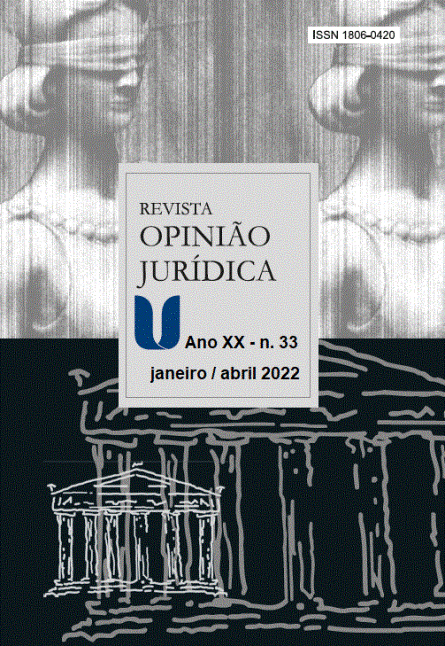THE FINANCIAL CONDITION OF EFFECTIVENESS OF THE LAW AND ITS CONTROL BY THE FEDERAL COURT OF ACCOUNTS
DOI:
https://doi.org/10.12662/2447-6641oj.v20i33.p1-30.2022Keywords:
Federal Court of Accounts, Executive, Legislative, Ineffectiveness of the LawAbstract
Objective: this article sought to analyze the institutional posture of the Federal Audit Court from the understanding of its powers and how it has expanded its political-administrative role through not only the activities of control and supervision of public policies approved and implemented, but especially through the financial control of the effectiveness of the law and, therefore, of the Legislature itself.
Method: the theoretical research of the legal-dogmatic type was developed from the study of the paradigmatic judgment of 1907/2019, issued by the Federal Court of Auditors, as well as the examination of constitutional and infra-constitutional normativity focused on public finances, dialoguing with works doctrinaires that exemplify the state of the art applicable to the subject and object in the scope of financial and constitutional law.
Result: it was considered, in the end, that the Legislative Power, through budget legislation, self-limited by its institutional choices in public finance, is originally responsible for controlling the financial condition of the effectiveness of the law, without prejudice to the autonomous body After all, taking into account the legislative self-limitation reinforced in recent years by the constitutional textuality, check the effectiveness of legislative acts that mobilize public resources as an adequate mechanism, including the reinforcement of the dialogic preservation of the autonomy and harmony of the Powers.
Contribution: the main contribution of this study consists in pointing out the insufficiency of the analytical tools offered by contemporary legal-financial dogmatics - and its historical legacy - to promote the reflective deepening of the theme opened by Judgment No. 1907/2019, in order to indicate, in the form of three integrated programmatic theses, directions that the doctrine must accept with constructive institutional imagination, since the epistemic field of financial law does not systematically contemplate the aforementioned political-administrative protagonism of the Court of Auditors of the Union.
Published
How to Cite
Issue
Section
License
CESSION OF COPYRIGHTS
The submission of articles to analysis for publication on Opinião Jurídica implies the author(s) transfers copyrights to Centro Universitário Christus – UNICHRISTUS for reproduction, publicizing, distribution, printing and publication, according to the Publication Norm 414R, Opin. Jur., Fortaleza, year 12, n. 16, p.1-414, Jan./Dec. 2014, costs to be bore by UNICHRISTUS, in whatever format or means that may or shall exist, in accordance to articles 49 and following of Federal Law 9.610/98.
1. In ceding copyrights, the author(s) agrees to do so in exclusivity, free of charge and for the totality of the work.
2. UNICHRISTUS may make the work, in its entirety or in parts, available for scholarly purposes, without altering its contents, except for small corrections that are deemed necessary.
3. The cession of copyrights is valid in all countries and for versions of the material in its original language or translated into a foreign language.
RESPONSIBILITY FOR THE CONTENT
By submitting an article, the author(s) declare to have sole responsibility for the content of the piece and is(are), therefore, responsible for any judicial or extrajudicial measures referring to it.
1. In case of joint authorship, all authors are considered collectively responsible, except when proved otherwise.


















